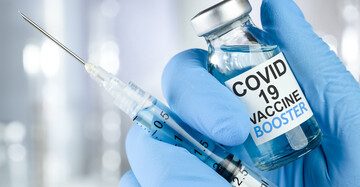by Mac Slavo, SHTF Plan:

The new COVID-19 scariant, Pirola is “spreading fast” across the United States, just in time for the new booster shots to be released. Doctors are warning that the BA.2.86 variant may be cause for concern as it is a newly designated and highly mutated variant of Omicron.
Omicron, which triggered a surge in cases in a number of countries including the U.S. was extremely mild for all intents and purposes. But the ruling class used it to fearmonger new “vaccines” and panic the masses into obedience.
TRUTH LIVES on at https://sgtreport.tv/
Of Pirola, infectious disease specialist Dr. Scott Roberts said: “Such a high number of mutations is notable. When we went from [Omicron variant] XBB.1.5 to [Eris] EG.5, that was maybe one or two mutations. But these massive shifts, which we also saw from Delta to Omicron, are worrisome.”
A separate mini-wave of Covid cases is being fueled by the newest dominant variant EG.5, or “Eris”. It has caused hospitalizations to increase by 39 percent since the end of July, according to The Independent.
Coincidentally, a new booster shot targeting Omicron will be released sometime in September, and it’s already been said it’ll likely protect against this new scariant.
Get Your Annual COVID Booster: FDA Expected To Approve Pfizer’s New Shot
Big Pharma Is Getting Ready For The Fall “Vaccine” Rollout
The Centers for Disease Control and Prevention says the updated COVID-19 vaccine will be available in mid-September.
The Pfizer, Moderna, and Novavax boosters are designed to protect against omicron subvariant XBB.1.5, which began circulating widely last fall and was the dominant strain this spring, according to Northeastern Global News.
“We’re switching to a model where we’re going to have annual vaccinations in the same way that we have with the flu vaccine,” says Neil Maniar, director of the Master of Public Health Program at Northeastern.
“Most people have been exposed in some way, either through vaccines or through infection, and have some level of antibody response so that even if they get infected, it should make (the illness) less severe,” said Brandon Dionne, an associate clinical professor in Northeastern’s School of Pharmacy and Pharmaceutical Sciences.. “That’s really the goal of vaccines,” he added.



